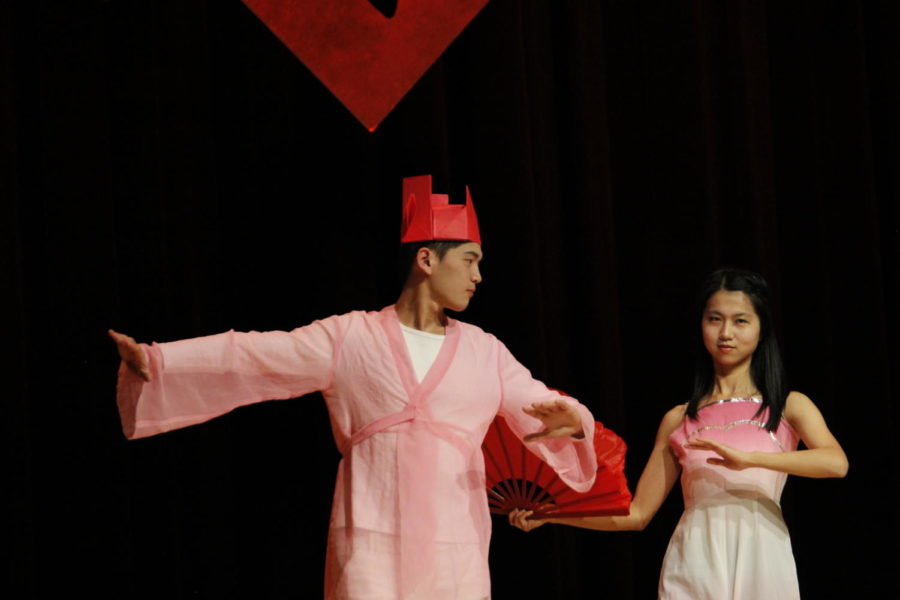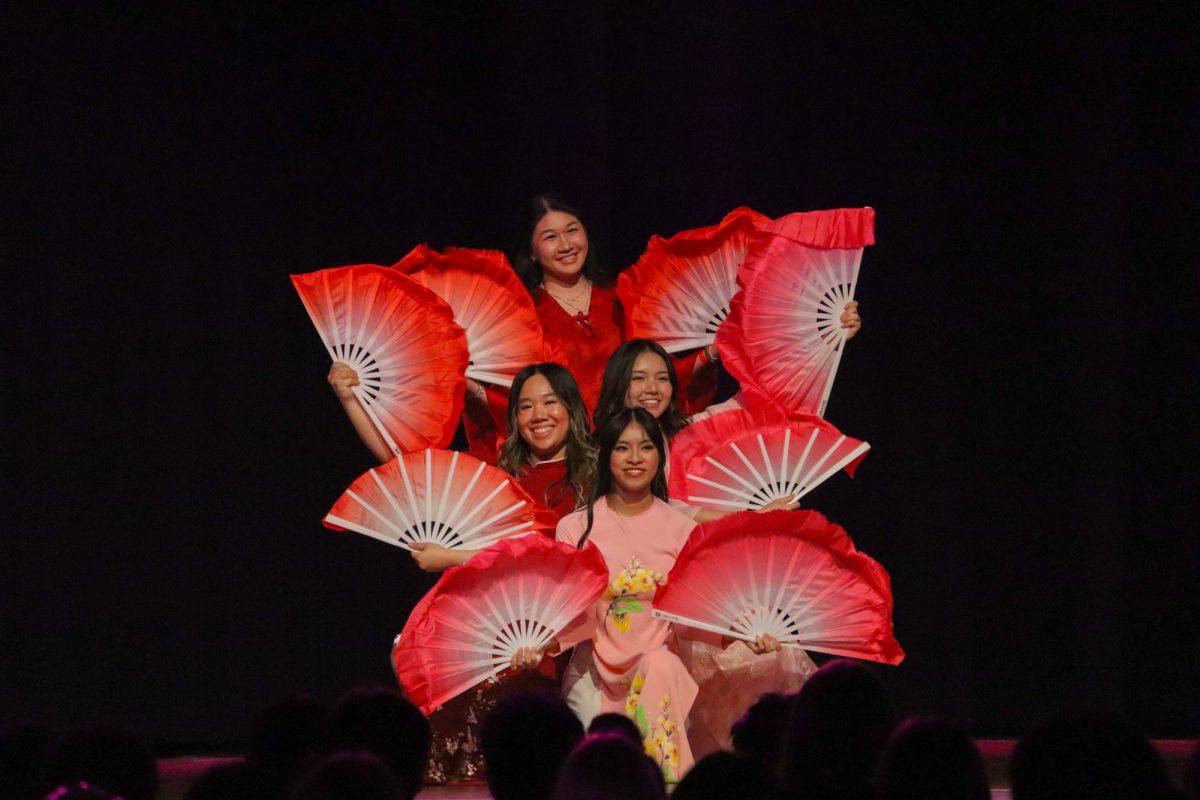What is Chinese New Year?
Students perform during the Chinese Spring Festival Gala Jan. 29. The festivities celebrated the Chinese New Year.
February 4, 2019
Today is the first day in the lunar calendar, which means the year of pig is here, and the celebration of Chinese New Year has officially started.
The Pig is the 12th and final animal of all zodiac animals. According to a Chinese myth, a long time ago, there was no calendar. No one knew how to calculate the year. So people went to the temple to worship and asked the Jade Emperor to help.
The Jade Emperor thought for a long time and finally came up with a good idea. He said animals and humans get along quite well. If animals were used to represent the changing of the year, it would be easy for everyone to remember. The Jade Emperor then hosted a race for all the animals in the world. The top 12 animals that finished the race won the honor to represent the Lunar Year.
The Chinese New Year is also known as the Spring Festival. It is still quite cold, but this holiday marks the end of the coldest days, which means spring is right around the corner. People welcome spring events like the planting, harvesting and new beginnings that comes with it. Chinese New Year is also the Lunar New Year, as countries such as North Korea, South Korea and Vietnam will celebrate it.
According to the lunar calendar, the Spring Festival starts on Jan. 1 and lasts until Jan. 15, which is a full moon. For people who use the regular (solar) calendar, the Chinese New Year ranges from Jan. 21 to Feb. 20 each year. In 2019, it happens on Tuesday. For Iowa State students and Ames residents who want to experience Chinese New Year, the Chinese Student & Scholars Association (CSSA) will throw a Spring Festival Gala.
The event will take place at 6 p.m. Sunday at the Great Hall of Memorial Union. It’s a three hour event, and admission is free.
The first part of the event will be a game competition. Attendees who finish all five games will receive a first place prize, those who finish three games will win a second place prize and those who finish two games will get a third place prize.
After the games, a talent show featuring Chinese traditional performances and modern dances will take center stage. Throughout the talent show, multiple raffles will be drawn. There will be 600 raffle tickets for attendees based on a first-come-first-serve policy.
The raffle prizes are “very exciting and will have a big surprise,” said Xiaoshi Yan, senior in finance and mathematics and the organizer of this year’s Spring Festival Gala.
One of the significant changes for this year’s talent show is that the CSSA will eliminate all performances that require Chinese-speaking skills, meaning the programs can be appreciated by all attendees.
Yan said she noticed in past events some attendees lost interest or were tired at the end of the Gala because the programs were too long.
“This year, we only picked the best of the best, and instead of a two-hour talent show, we will keep it under 90 minutes,” Yan said. “We welcome everyone to come, whether you are interested in Chinese culture or not. It’s just a fun event.”






